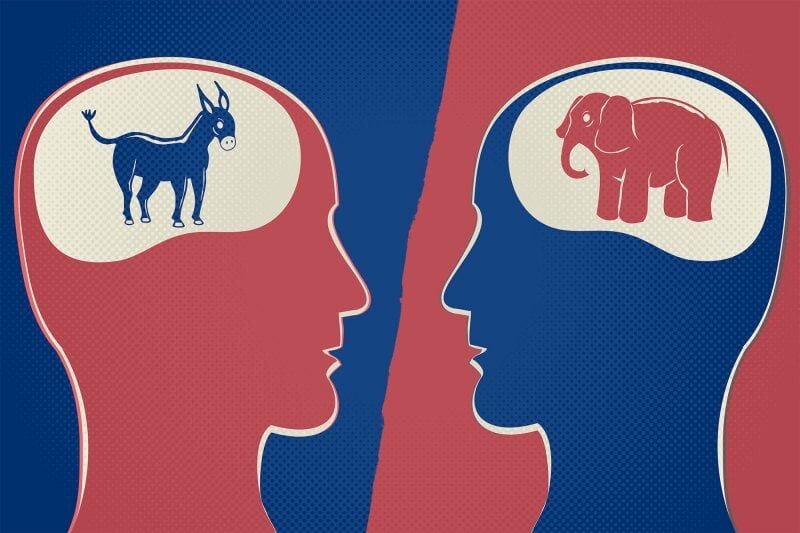
ONE of the upsides of the current brouhaha over tariffs is that more people are now realizing that they are bad — as Adam Smith pointed out in the 18th century. To more sensible pundits, using tariffs as a “negotiating tool” is the only acceptable form of what everyone now recognizes as a tax.
The ongoing debate, in other words, has somewhat elevated the discourse about an important economic concept, and that is a good thing.
Now, here’s a thought experiment: Imagine if it were the anti-Trump camp pushing for tariffs galore. That is not far-fetched. After all, a belief in economic protectionism “infects” many politicians across the political spectrum. (Worse, economic illiteracy is widespread and highly contagious. But that’s another — and sadder — story.)
In politics, as psychology professor and author Drew Westen would put it, we have a tendency to see what we want to see — and what we want to see is usually determined by our politics. In his excellent book, “The Political Brain,” he noted how our brain “gravitates toward solutions designed to match not only data but desire” — that is, our preferred solutions, which, of course, reflect our political beliefs. Our brains, Westen added, “have a remarkable capacity to find their way toward convenient truths — even if they’re not true at all.”
For years, he said, “political scientists tended (or perhaps wanted) to believe that emotion-driven thinking is more characteristic of less sophisticated or less knowledgeable voters. However, the more sophisticated people are politically (e.g., the more they know about an issue), the more able they are to develop complex rationalizations for dismissing data they don’t want to believe. Politically knowledgeable citizens also tend to be partisans, which gives them the strongest reasons for distorted thinking.”
Incidentally, Westen wrote “The Political Brain” to, among other things, help his fellow Democrats win more elections.
Citing the results of a series of studies that he and his research team conducted, Westen concluded that in high-stakes political situations, in which emotions are running strong, reason plays virtually no role in the decision making of the average citizen.
In 2004, a presidential election year, he and his team interviewed 15 “die hard” Democrats and an equal number of staunch Republicans. “We presented [them] with six sets of statements involving clear inconsistencies by [the Democratic candidate John] Kerry, six by [his Republican opponent George W.] Bush, and six by politically neutral male figures (e.g., Tom Hanks [the actor], William Styron [the novelist].)… So how did they respond? … They had no trouble seeing the contradictions for the [opposing] candidate, rating his inconsistencies close to a 4 on the four-point rating scale. For their own candidate, however, ratings averaged closer to 2, indicating minimal contradiction. Democrats responded to Kerry as Republicans responded to Bush….”
In an earlier seminal study, Westen said, researchers presented subjects (study participants) with two alleged studies, one supportive of the efficacy of capital punishment and the other not. “Subjects who came in with positive attitudes toward capital punishment had few complaints with the ‘pro’ study, but they discounted the arguments and rejected the conclusion of the ‘con’ study. Subjects with negative attitudes toward the death penalty showed the opposite pattern. Both proponents and opponents of the death penalty walked away from the experiment with stronger convictions than when they had come in. Being confronted with mixed data only increased their dogged commitment to their point of view.”
Westen’s book, which was published in 2007, provides a ready explanation for the astounding political career of Donald Trump: “The data from political science are crystal clear: people vote for the candidate who elicits the right feeling, not the candidate who present the best arguments.”
But what if we are more self-aware, more introspective?
In “The Art of ɓuᴉʞuᴉɥꓕ Clearly,” Rolf Dobelli said introspection is not reliable. When we “soul-search,” he said, we contrive the findings. Nothing is more convincing than our own beliefs, he added. Hence, he said, when someone fails to share our views, we experience three reactions. “Response 1: Assumption of ignorance.” The other guy lacks info. “If he knew what you know, he would be of the same opinion…. Reaction 2: Assumption of idiocy. The person has the necessary information, but his mind is underdeveloped. He cannot draw the obvious conclusions. In [short], he’s a moron…. Response 3: Assumption of malice. Your counterpart has the necessary information — he even understands the debate — but he is deliberately confrontational. He has evil intentions….”
Perhaps Dale Carnegie is right: “[T]here is only one way under high heaven to get the best of an argument — and that is to avoid it. Avoid it as you would avoid rattlesnakes and earthquakes.”
But, you may ask, where’s the fun in that?
Send feedback to editor@mvariety.com











